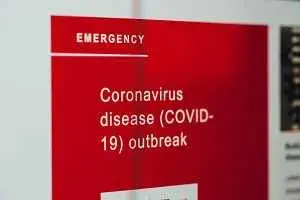By Priya Adlakha and Nihit Nagpal
The novel Coronavirus (COVID-19) originated in the city of Wuhan, China, and the deadly virus has now encompassed throughout the World affecting almost 210 countries and territories. The World Health Organization (WHO) has declared COVID-19 a pandemic and the virus has brutally disrupted normal life and economy across the World. Millions of people have been infected by the coronavirus pandemic so far, many thousands of people have lost their lives due to this disease. Flight cancellations, shutdown of public places, and remote functioning of offices has caused unprecedented disruption. To check and combat the widespread transmission of COVID-19, one of the prominent measures taken by various Governments across the World are announcing lockdowns and imposing curfews to ensure social distancing and lessen the chances of transmission of virus.
Similarly, in India, the preliminary concerns of the Government and its officials revolved around the health and safety of all its citizens. Thus, considering the rapid spread of the deadly contagion, the Hon’ble Prime Minister of India on March 24, 2020 announced a 21-day nationwide lockdown which was thereafter extended till May 03, 2020 and now has been further extended upto May 18, 2020 . This lockdown, impacting nearly one-fifth of the world’s population has been implemented to ensure effective social distancing norms, thereby preventing and containing the spread of COVID-19.
In the present circumstances, the words ‘Curfew’ and ‘Lockdown’, are being interchangeably used by the authorities and general public. However, the statutory legal provisions governing the imposition of ‘lockdown’ and ‘Curfew’ denote different legal connotations. It is interesting to study the difference.
Lockdown
The nationwide lockdown was announced in pursuance of the directions issued by the National Disaster Management Authority, under the Disaster Management Act, 2005.Under Sections 2, 3 and 4 of the Epidemic Diseases Act, 1897, Government has the power to take special measures and prescribe regulations with respect to dangerous epidemic diseases so as to prevent its outbreak or spread in the country.
A ‘lockdown’ basically means that people need to stay indoors but they can go out to buy essential commodities and essential services. There are curbs on passenger travel by road as well as railways, and people can venture out only if they have State-issued self-declaration affidavits or curfew passes. Commercial establishments barring those establishments which essential services and commodities have been asked to shut shops. If anyone disobeys the orders/regulations passed under the Epidemic Diseases Act, 1897, then the same shall be deemed to have committed an offence under Section 188 of the Indian Penal Code. Any negligent act likely to spread infection of disease dangerous to life or any wilful act to spread the infection of the said disease is also punishable under Sections 269 and 270 of the Indian Penal Code, respectively.
Curfew
Under Section 144 a District or Executive Magistrate, empowered by the State Govt. in this behalf, can issue an order restraining the movement, dealing with the property, abstaining from doing a particular act of a person or to the public in general, residing in any particular area, if such Magistrate considers that such direction is likely to prevent injury to human life, health or safety. In normal parlance, this is called ‘Curfew’.
It has been noted that several media reports have been using the term curfew for “lockdown” orders in the context of Covid-19, however the same is misleading and fundamentally incorrect.
Orders for lockdown and its legal dictum would be a necessary tool to impose certain restrictions on public gatherings and movement and such orders cannot be challenged on the ground of infringing the Fundamental Right enshrined under Article 19(1)(b) or (d) of the Constitution as same was found to be well within the limits of reasonable restriction under Article 19(2) and (5) of the Constitution.
Related Posts
INDIA: RECENT STATE WISE UPDATES – COVID-19
TEMPORARY RELAXATIONS FOR CORPORATES AMID COVID-19
Novel Coronavirus (Covid -19) Outbreak: Delhi High Court takes its battle a Notch Higher
India: Threshold Limit under IBC Enhanced to INR 1 Crore amidst Coronavirus Crisis
Coronavirus Outbreak: IPAB adjourns hearings till April 21st and 22nd, 2020
India: The Functioning of the Indian Judiciary amidst Novel Coronavirus (COVID-19) Outbreak
Indian Supreme Court’s response to COVID – 19: extends period of limitation for all!


